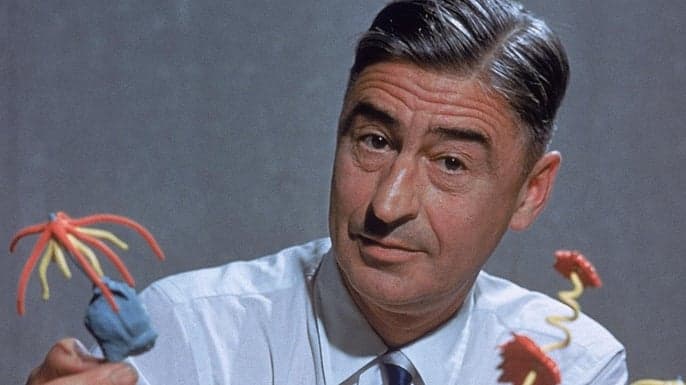Theodor Geisel, better known to the world as Dr. Seuss, the author and illustrator of such children’s books as “The Cat in the Hat” and “Green Eggs and Ham,” is born in Springfield, Massachusetts on March 2, 1904. Geisel, who used his middle name (which was also his mother’s maiden name) as his pen name, wrote 48 books—including some for adults—that have sold well over 200 million copies and been translated into multiple languages. Dr. Seuss books are known for their whimsical rhymes and quirky characters, which have names like the Lorax and the Sneetches and live in places like Whoville.
READ MORE: 10 Things You May Not Know About Dr. Seuss
Geisel graduated from Dartmouth College, where he was editor of the school’s humor magazine, and studied at Oxford University. There he met Helen Palmer, his first wife and the person who encouraged him to become a professional illustrator. Back in America, Geisel worked as a cartoonist for a variety of magazines and in advertising.
The first children’s book that Geisel wrote and illustrated, “And to Think That I Saw It On Mulberry Street,” was rejected by over two dozen publishers before making it into print in 1937. Geisel’s first bestseller, “The Cat in the Hat,” was published in 1957. The story of a mischievous cat in a tall striped hat came about after his publisher asked him to produce a book using 220 new-reader vocabulary words that could serve as an entertaining alternative to the school reading primers children found boring.
Some Dr. Seuss books tackled serious themes. “The Butter Battle Book” (1984) was about the arms buildup and nuclear war threat during Ronald Reagan’s presidency. “Lorax” (1971) dealt with the environment.
Many Dr. Seuss books have been adapted for television and film, including “How the Grinch Stole Christmas!” and “Horton Hears a Who!” In 1990, Geisel published a book for adults titled “Oh, the Places You’ll Go” that became a hugely popular graduation gift for high school and college students.
In recent years, some of Geisel's books, including “And to Think That I Saw It on Mulberry Street” and “If I Ran the Zoo," have come under scrutiny for insensitive and racist imagery. In March 2021, Dr. Seuss Enterprises announced it would no longer publish six of these books.
Geisel, who lived and worked in an old observatory in La Jolla, California, known as “The Tower,” died September 24, 1991, at age 87.
READ MORE: When Dr. Seuss Went to War

